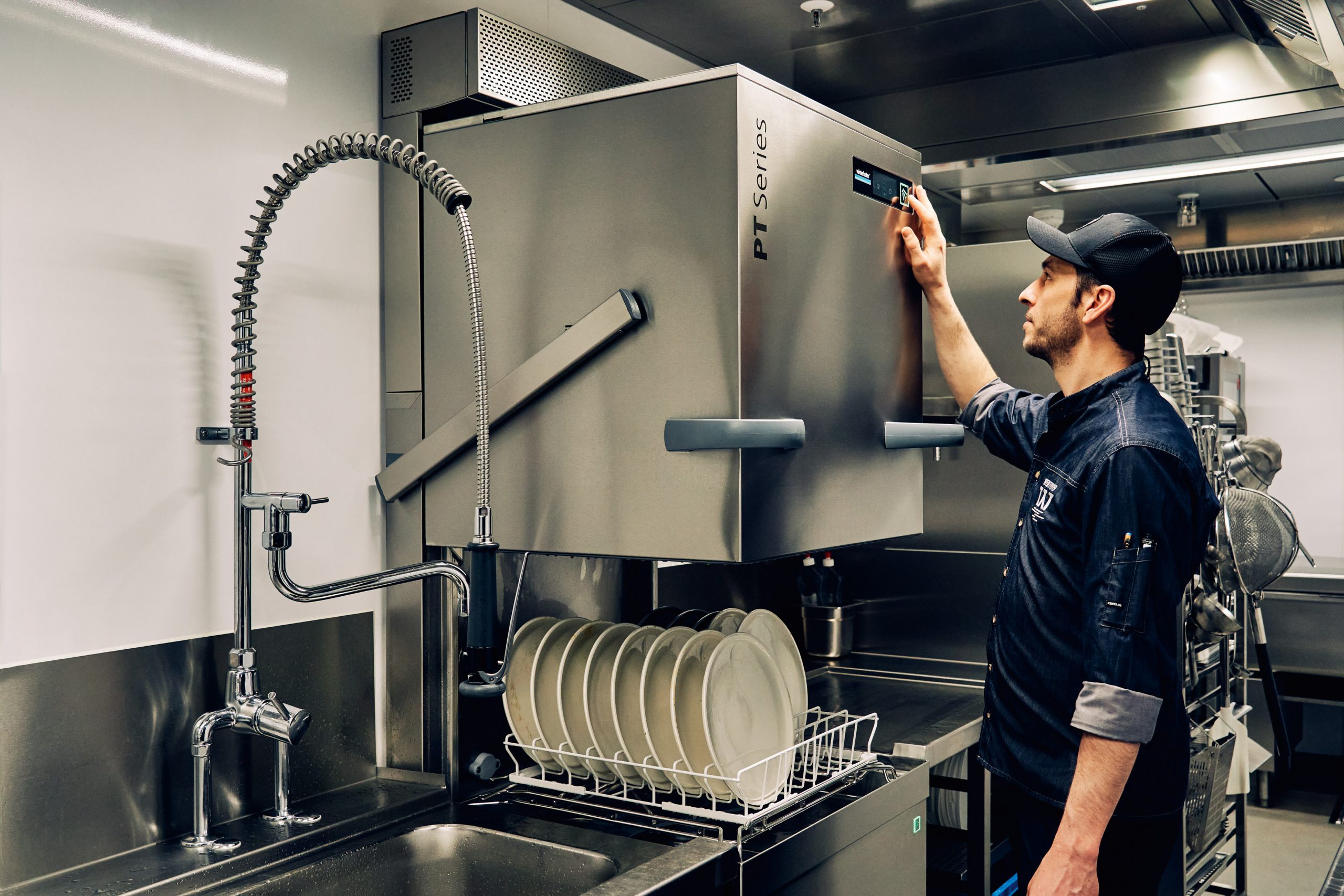Winterhalter calls on equipment suppliers to develop finance schemes to help struggling operators
More and more pubs, clubs and restaurants are reducing their opening times in order to save money. Whether it’s closing early or shutting altogether on quiet days of the week, the trend is bound to have an impact on income and a business’s ability to increase their profit. One problem is that investing in new equipment becomes even more difficult. What’s required, says Winterhalter, is innovation in how new equipment is financed, so that the cost reflects the business’s operating hours.
The trouble with conventional finance schemes, such as leasing, is that, when a business is closed, the equipment may be idle but it’s still costing money. Winterhalter says there is a solution – finance based on pay-as-you-go usage, such as the company’s Pay Per Wash (PPW) system, which only costs when the dishwasher is actually being used. If it’s not operating, it’s not costing.
The company says more equipment manufacturers should be seeing if their products can make use of the latest digital technology to offer similar schemes, to ease the financial burden on foodservice operators.
“Advanced technology is increasingly commonplace in foodservice equipment,” says Stephen Kinkead, managing director of Winterhalter UK. “There should be ways for other appliance manufacturers to follow the Winterhalter lead, so that, for example, cooking appliances could have some sort of pay-as-you-use finance scheme too.”
With PPW, the customer is supplied with a ‘free’ top quality dishwasher or glasswasher and then buys credits, online or by phone, which are automatically applied to the machine. PPW is available with or without connection to the internet, so if the site has limited WiFi, it can still benefit from the scheme. Whether using connectivity or not, it’s simple, quick and efficient. What’s more, the scheme covers not only the machine but also the cleaning chemicals – detergents and rinse aids – and servicing. So it takes away all the headaches of warewashing, and it only costs when the machine is in use. A typical undercounter glasswasher in a busy site will cost around 30p per wash.
“Using new technology to create innovative finance schemes can help struggling foodservice businesses to survive and, ultimately, to thrive,” says Kinkead. “The great thing about a scheme like PPW is that, in today’s volatile market which foodservice operators are trying to navigate, it’s flexible and can adapt to their needs. So if the business decides to start opening an extra hour a day, or an extra day a week, the operator just pays for more washes. It’s simple, with no complicated paperwork or refinancing to arrange.”
With PPW, if the business’s situation changes, they may decide to buy the machine outright, in which case they will get an allowance based on what they have paid already through the scheme. Alternatively, they may decide to give the machine up – as there is no contract, there’s no issue. “Offering finance schemes that are versatile enough to adapt to the operator’s individual needs has got to be the way forward,” says Kinkead.
Pay Per Wash is available on a wide range of passthrough and undercounter Winterhalter dishwashers and glasswashers. There is lots of information about the scheme under the finance tab at winterhalter.com/uk-en, including a downloadable brochure.

